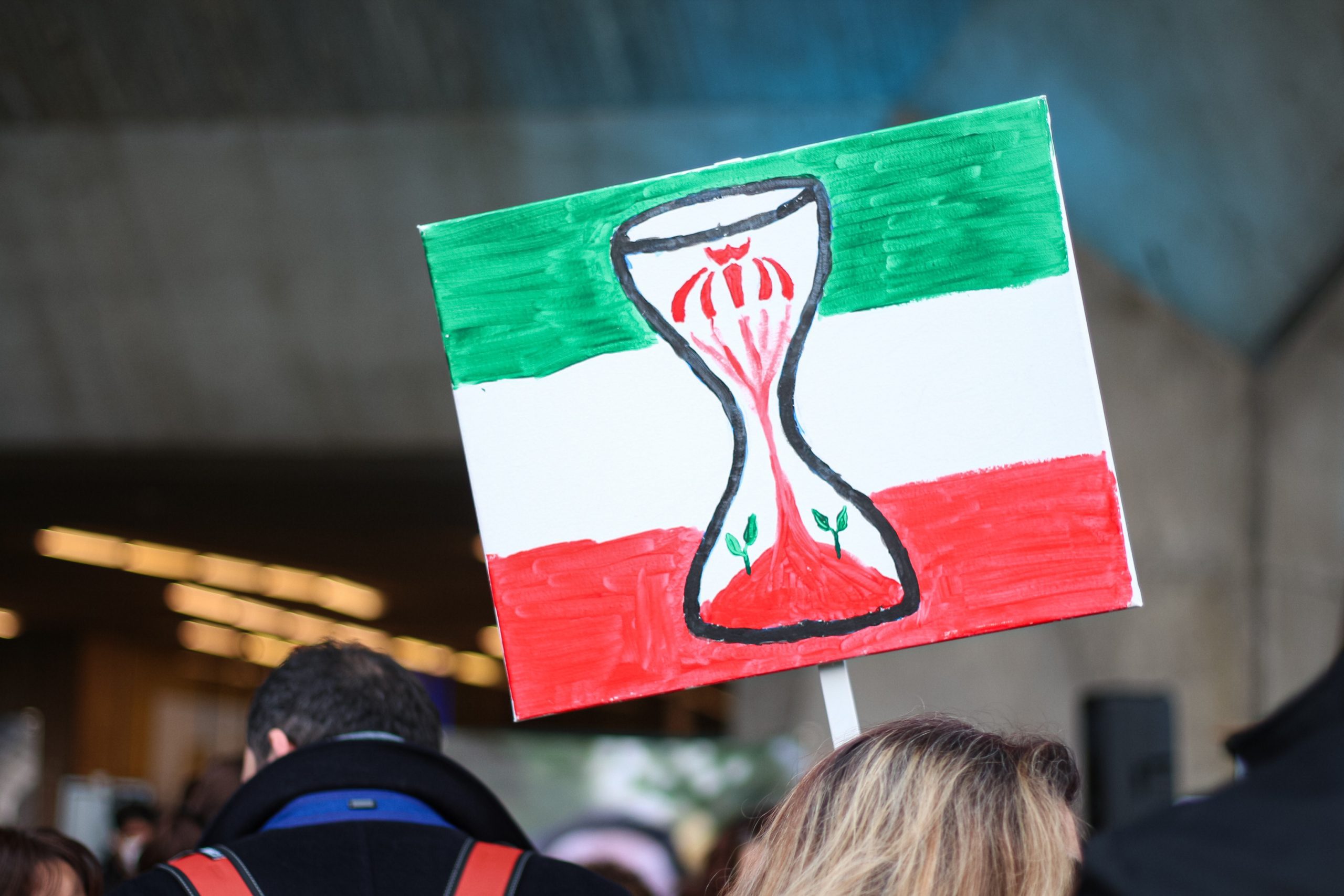From murder to dismissal: Scholars at Risk counted 409 attacks on academic freedom in 66 countries last year. More than last year. The Netherlands is also mentioned.
A participant holds up a sign during a demonstration on the TU campus against the systematic oppression of women in Iran. (Photo: Justyna Botor)
The ninth edition of the Scholars at Risk annual report, Free to Think 2023, analyses the violence and repression experienced by students and staff at universities around the world.
The authors list 161 cases of murder, violence or disappearance. In 86 cases, students or researchers were imprisoned. Others were coerced into quitting their jobs, faced travel restrictions or had to defend themselves against false accusations in court.
Iran
According to the organisation, the violent way in which the Iranian government responded to protracted national protests following the death of 22-year-old Mahsa Amini on 16 September 2022 had a particularly significant impact on the academic community this year.
In 22 countries, academic freedom is said to have declined last year
Hundreds of Iranian students have been arrested, imprisoned, suspended or banned from university. Penalties have been imposed on some of them and tens of professors have been dismissed. Others have stepped down or have fled the country. In many cases, university administrators have been replaced by government supporters.
Academic freedom
According to Scholars at Risk, academic freedom has declined in 22 countries. In Afghanistan, for instance, a lot has changed since the Taliban came into power. A suicide terrorist killed 53 students at an institution.
The ongoing war in Ukraine has also left its mark. Since the Russian invasion in Ukraine, many institutions in the country have been destroyed or taken over by the occupier. President Zelensky has made it mandatory for students to join the military. In Russia itself, the situation has also worsened: dissident scientists have been dismissed and an independent university was closed.
Persecution
Scholars at Risk has been keeping track of attacks on academic freedom since 2011. The organisation calls for governments and other parties to protect this freedom and to show solidarity with academics facing persecution.
‘Teachers in higher education have the right to criticise their institutions’
The Netherlands is also mentioned in the report, in connection with the dismissal of social safety expert Susanne Täuber. The University of Groningen (UG) had got the green light from the subdistrict court to dismiss her, because the relationship with her faculty had become “seriously disrupted”. One reason for this was her publication of a scientific article in which she criticised UG’s diversity policy.
Scholars at Risk is concerned about the dismissal. “Higher education faculty have the right to criticize the institutions where they work without fear of reprisal, and university administrators have an obligation to refrain from retaliatory actions intended to punish, restrict, or chill academic activity.”
HOP, Peer van Tetterode
Do you have a question or comment about this article?
redactie@hogeronderwijspersbureau.nl


Comments are closed.